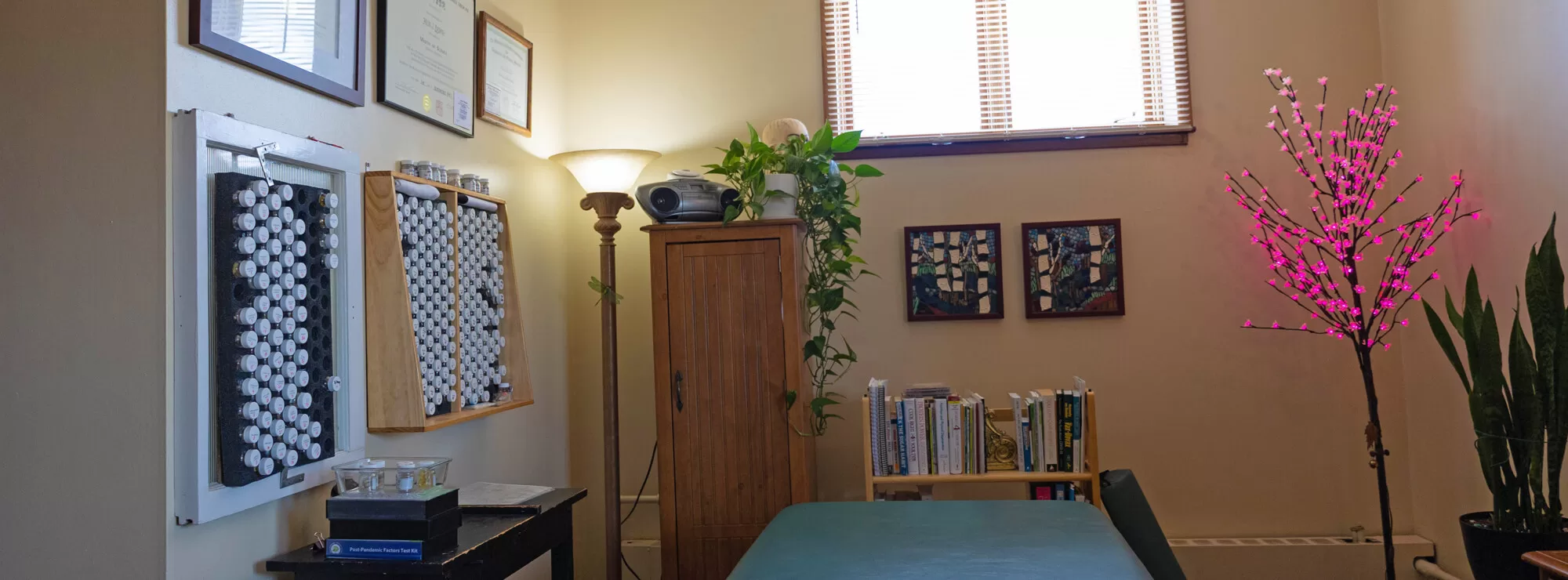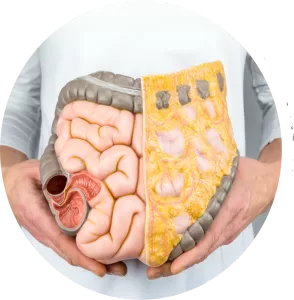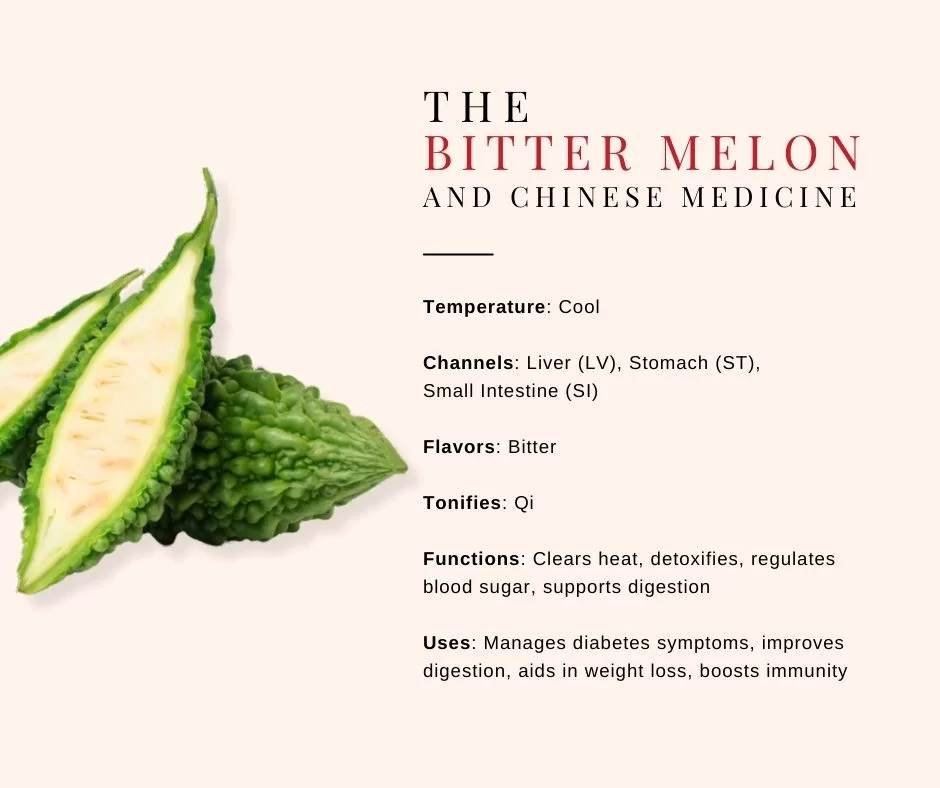- WE MOVED !!!
-
 Professional Acupuncture & Physical Therapy1118 East Superior Street
Professional Acupuncture & Physical Therapy1118 East Superior Street
Duluth, MN 55802(218) 724-3400 Clinic Hours
Mon8:00 am - 4:30 pmTue1:45 pm - 4:30 pmWed8:00 am - 4:30 pmThu8:00 am - 4:30 pmFriCLOSED

- Long Covid Booklet
Traditional Chinese Medicine
Recipe for Healthy Skin

Zucchini Chickpea Burgers
This vegan and gluten-free recipe is filled with healthy ingredients to boost the skin and overall health!
Ingredients (serves 6)
- 2 tablespoons olive oil
- 3 cloves of garlic, minced
- 1 small onion
- 1.5 cups of zucchini squeezed dry
- ½ cup of toasted sunflower seeds
- ¾ teaspoons of sea salt
- 1.5 cups of canned chickpeas
- 1 cup of cooked quinoa
- 2 tablespoons of dijon mustard
- 1 tablespoon of lemon juice
- 2 tablespoons of fresh chopped dill
- ½ teaspoon paprika
Saute onion and garlic in a pan with 1 tablespoon of olive oil. When tender, add zucchini and saute until cooked. Season to preference with salt and pepper. Grind sunflower seeds, sea salt, pepper until ingredients are coarse crumbs. Add quinoa, chickpeas, dijon mustard, lemon, dill and paprika to mixture. Mix until ingredients are broken up with some texture remaining. Add zucchini, onion, and garlic to mixture. Shape into 6 patties and cook on medium heat with olive oil in a pan into golden brown.
Sources: http://dailym.ai/1md99Vp, http://bit.ly/1NetFxO, http://bit.ly/1NPJuYL, http://bit.ly/21VFuQX
Natural Facelifts with Acupuncture

More and more Americans are turning away from Botox and invasive cosmetic procedures and finding that facial acupuncture is giving them the natural facelift they are looking for. Facial acupuncture, which has seen a large increase in popularity in the past ten years, works by improving blood flow at the site of the needle placement and stimulating cell growth.
According to an article in the Daily Mail, inserting acupuncture needles “encourages the production of healing collagen, the protein which the body uses to keep the skin youthful and elastic.”
Patients have reported glowing skin after receiving a 30-minute acupuncture treatment as well as smoother and brighter skin the next day. Color to the face also sees improvement from the increase in blood flow.
Cosmetic acupuncture can reduce and soften fine lines in the face as well as reducing bags under the eyes.
Acupuncture and Traditional Chinese Medicine work by addressing the body as a whole. Facial acupuncture will not only change the way your skin looks, but will improve overall wellbeing. Reports of better sleep and less stress have also been seen from facial acupuncture.
Because TCM believes that every part of the body is linked to internal organs, it is believed that sagging skin can be a result of a weakness in the spleen, and dark circles under the eye are linked to a liver or stomach weakness.
When acupuncture addresses these organs through specific points on the body, it returns the body to its normal function and as a result helps the problem areas.
Facial/cosmetic acupuncture is non-invasive and has no side effects. It is painless and not only helps rejuvenate the face, but reduces feelings of anxiety and stress. Acupuncture helps improve the body’s natural energy flow, called qi, returning the body back to balance.
Contact Heidi at (218) 724-3400 to learn more about how facial acupuncture can not only improve and rejuvenate skin, but destress and relax the body and mind.
6 Ways to Improve/Maintain Youthful Skin
- Green tea – Green tea is packed with antioxidants and anti-inflammatory properties that help sooth and reduce redness in the skin. Some experts believe green tea can help reduce collagen destruction that leads to wrinkles. Try starting with even just one cup of green tea a day so increase your antioxidant intake.
- Vitamin C – Topical vitamin C applied to the face has been shown to increase collagen production and protect against UV rays. When L – ascorbic acid, a type of vitamin C, is used, research showed the vitamin can improve pigmentation as well as inflammatory skin issues.
- Reduce stress -Stress is not only felt mentally, but physically as well. Stress can cause breakouts due to an increase in hormones, making the skin oilier and lessening the body’s defense against bacteria. Make sure to get adequate sleep and give yourself time off for relaxation to calm the mind and reduce stress.
- Monitor sun exposure – It is common knowledge that high amounts of sun exposure over the years damages your skin and causes wrinkles. Make sure to always wear sunscreen on your face to protect against harmful UV rays. Even if it is overcast outside, you are still exposed to UV rays. It is important to wear a high SPF sunscreen on your face year round to prevent wrinkles and skin cancer.
- Omega-3 fatty acids – Increasing your intake of omega-3 fatty acids is not only good for overall health, but can also help reduce wrinkles and keep the skin looking youthful. These fatty acids can be found in salmon, nuts, seeds, and fish oil supplements.
- Acupuncture – Facial acupuncture has become increasingly popular in the past ten years in rejuvenating the skin. Reports have found facial acupuncture can reduces lines on the face and leave skin smoother and glowing. Acupuncture is a natural and non-invasive treatment that does not have side effects. Treatment can also leave one feeling overall more relaxed and at ease.
Acupuncture and colon cancer
 Colon cancer is the third most common cancer in the United States with about 60,000 deaths from it every year. Like all cancer, treatment can be long, uncomfortable and come with many side effects. Those getting chemotherapy may experience nausea, vomiting, postoperative pain, cancer related pain, insomnia and anxiety. The chronic pain can significantly impact quality of life. Most patients are prescribed medications such as opioids for pain that have side effects and are highly addictive.
Colon cancer is the third most common cancer in the United States with about 60,000 deaths from it every year. Like all cancer, treatment can be long, uncomfortable and come with many side effects. Those getting chemotherapy may experience nausea, vomiting, postoperative pain, cancer related pain, insomnia and anxiety. The chronic pain can significantly impact quality of life. Most patients are prescribed medications such as opioids for pain that have side effects and are highly addictive.
In Traditional Chinese Medicine it is believed that colon cancer comes from a number of underlying factors such as spleen yang deficiency, kidney yang deficiency, kidney yin deficiency and liver yin deficiency. Acupuncture works by addressing these deficiencies to return the body back to balance. Using specific points on the body related to these organs, acupuncture stimulates the body’s natural energy flow, Qi, and blood flow to improve organ health.
Going through chemotherapy treatment can cause severe fatigue. One study showed that acupuncture resulted in a 30 percent improvement in a baseline fatigue score.
Insomnia and anxiety are one of the most common symptoms that cancer patients experience. Acupuncture has been proven in numerous studies to be just as effective, if not more, than prescription drugs in improving sleep and decreasing stress and anxiety levels. This alternative treatment has also been shown to improve overall mood.
Acupuncture can help boost the immune system. Chemotherapy can greatly lower the body’s immune defense, leaving one in a vulnerable state due to a decrease in white-blood cell count. By increasing blood flow and stimulating Qi, acupuncture is a great way to improve immune function.
Cancer and cancer treatment is nothing to take lightly. A diagnosis can drastically change one’s life not only physically but mentally as well. If you have been diagnosed with colon cancer and/or going through chemotherapy, it is important to remember that there are alternative, safe treatments that can help make the process easier. If a loved one is going through treatment, support is the best thing you can do for them. March is National Colorectal Cancer Awareness Month and there is no better time to get tested and become educated on the facts.
Sources: https://theory.yinyanghouse.com/conditions-treated/alternative-natural-options-for-colon-cancer
Five Foods To Avoid For A Healthy Colon
If you want to keep your colon clean it is important your diet reflects that. Optimal colon health is very dependent on what you are or are not putting into your body. There are specific foods that don’t help out your colon at all. Take a look at these five foods you should avoid to make sure your colon is healthy and functioning at its highest possible level.
- Processed Meats
One of the most important things to avoid if wanting a healthy colon is processed meats, and this can be hard to do. In the food culture we are surrounded by, processed meats are on a regular display. Lots of restaurants and grocery stores are doing a better job of avoiding processed meats now, but it can still be hard to avoid them. You want to make sure you do though, as they have been linked to an increased risk of colon cancer.
- Alcohol
Alcohol can be detrimental to your body if you so let it. An increased risk of colon cancer, damage to the digestive tract and liver damage are all risks you take when partaking in heavy consumption of alcohol. So do your colon a favor and limit your intake.
- Burned or Charred Foods
It is best to utilize cooking methods that decrease the risk for colon injury or cancer. Burning or charring foods creates carcinogens, which can lead to an increased chance of colon cancer. Take care of your foods when barbecuing and avoid eating over blackened or charred areas.
- Fast-Food
This one is pretty self-explanatory. Don’t eat fast-food. Just do yourself a favor and avoid these foods high in fat, sodium and cholesterol. Help out your colon, pass on the fast-food.
- Limit Sugar
Diets high in sugar have been shown to increase the chance of colon problems, such as Crohn’s Disease and ulcerative colitis. Sugar has yet to be directly linked to colon cancer, but it is linked to weight gain and obesity.
Food as Medicine – Bitter Melon

Bitter Melon
Bitter Melon, with its cool nature and bitter flavor, is particularly beneficial during hot weather or for heat-related health issues. It primarily affects the Liver, Stomach, and Small Intestine channels, helping to clear heat and detoxify the body. By tonifying Qi, Bitter Melon supports the body’s natural energy levels and aids in regulating blood sugar, making it an essential food for those managing diabetes. Additionally, its properties improve digestion and boost immunity, making Bitter Melon a powerful component in promoting overall gastrointestinal health and wellness.
Stir-Fried Bitter Melon with Black Bean Sauce
Ingredients
- 2 medium sized bitter melon
- 2 tablespoons fermented black beans
- 2 garlic cloves, minced
- 1 tablespoon ginger, minced
- 2 green onions, chopped
- 1 tablespoon soy sauce (or to taste)
- 1 teaspoon sesame oil
- 1 tablespoon cooking oil(preferably a neutral oil)
- optional: 100g (about3.5 oz) sliced beef or tofu for protein (adjust soy sauce and cooking time accordingly)
Preparation
- Prep Bitter Melon: Halve, deseed, slice into half-moons. Optional: Soak in water for 10 mins, then rinse.
- Rinse Black Beans: Rinse, lightly mash with fork.
- Stir-Fry Aromatics: Heat oil, add minced garlic, ginger, half of green onions. Stir-fry until fragrant, 1-2 mins.
- Cook Bitter Melon: Increase heat, add slices. Stir-fry until softened, 3-5 mins.
- Add Protein (Optional): Add beef or tofu, cook until done.
- Season: Stir in black beans, soy sauce. Cook 2 mins. Drizzle with sesame oil, sprinkle remaining green onions.
Five Acupuncture Points for Indian Summer

Acupuncture is part of a medical system that dates back nearly 3,500 years. This medical system is known as Traditional Chinese Medicine or TCM. TCM acknowledges not four but five seasons. The fifth season, Indian Summer, occurs in late August through mid-September. Each season in TCM has a pair of organs or energetic pathways it corresponds to. For Indian Summer, these pathways are those of the spleen and stomach.
The spleen and stomach are directly responsible for digestion. The spleen also has the added function of transporting and absorbing water in the body. When the spleen is not functioning properly, the body may suffer from a buildup of dampness. This can manifest as edema, digestive issues and even brain fog. Many people who have impaired spleen function also suffer from diabetes.
To keep the spleen and stomach functioning properly within the TCM system, things like acupuncture, herbal formulas, nutritional counseling and practices like qi gong or tai chi may need to be incorporated. There are over 350 acupuncture points on the body, but there are some that work exceptionally well during Indian Summer to help with digestion and fluid transport.
- Spleen 9 – This point is located bilaterally on the inside of the lower leg. It can be found by locating the tibia, following it up the leg to the knee and then feeling for the depression behind and below the lower edge of the tibia. This acupuncture point is a wonderful point to use to help drain edema and decrease abdominal pain, bloating and diarrhea.
- Stomach 25 – This point is located bilaterally on the lower abdomen. It can be found about 2 finger-breadths laterally away from the middle of the belly button and completely level with it. This point is part of a group known as the four doors. Stomach 25 is used to treat abdominal pain, bloating, constipation, diarrhea and edema.
- Ren 6 – This point is located on the midline of the abdomen, about one and a half thumb-breadths directly below the belly button. This is another point that is part of the four doors grouping. Ren 6 can be used to help with abdominal pain, edema, diarrhea, constipation and menstrual problems.
- Ren 12 – This point is located on the midline of the abdomen, about four thumb-breadths directly above the belly button. This is the final point that completes the four doors grouping. Just like its counterparts, Ren 12 can help with bloating, abdominal pain and diarrhea. It is also used to treat stomachaches, acid reflux, vomiting and diarrhea.
- Spleen 6 – This point is located bilaterally on the inside of the lower leg. It is found three thumb-breadths above the medial ankle bone and just behind the tibia. Spleen 6 is frequently used by acupuncturists. It helps with abdominal pain and bloating, diarrhea, menstrual problems, urinary leakage, edema, dizziness, vertigo and insomnia.
Any of these points can be used alone or in conjunction with others. They can be manually stimulated using pressure from a finger or dull, rounded tool. But for best effects, it is recommended acupuncture be applied.
